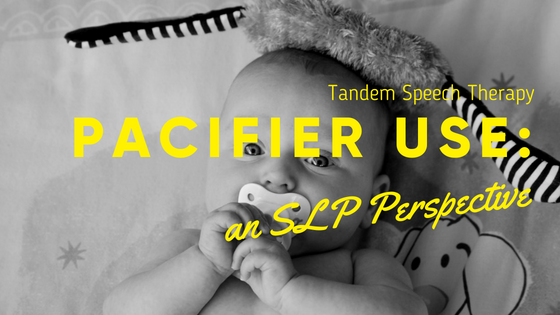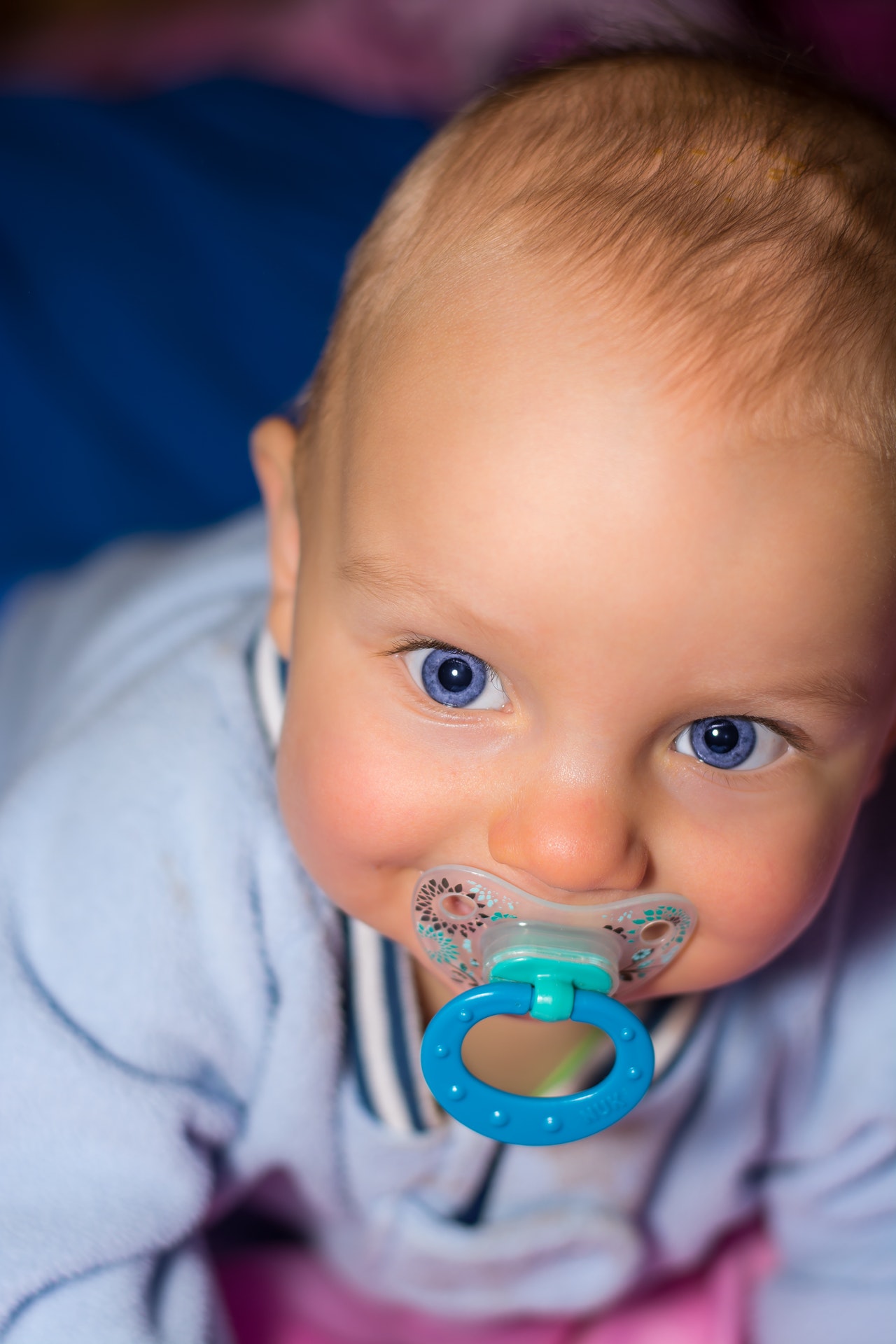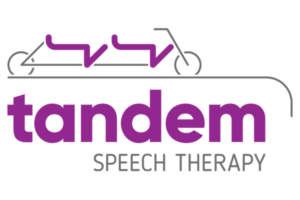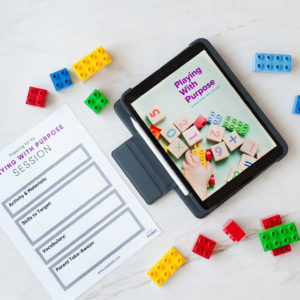
As a pediatric speech-language pathologist treating the birth to three population the topic of pacifier use comes up often. In fact, it is a question I ask parents during the case history interview in an evaluation. I also ask about thumb sucking and prolonged bottle use. While the jury is still out, today I will help to answer the question “Does pacifier use harm or impact a child’s speech and language development?”
What does research tell us about pacifier use?
Pacifier use has been associated with conditions that are considered risk factors for speech and language issues:
- Ear infections: Prolonged and frequent pacifier use appears to be a risk factor in the development of otitis media. Repeated middle ear infections can increase the risk of hearing loss – and even cause temporary conductive hearing loss. Children with hearing loss have more difficulty learning speech and language.
- Dental problems: Malocclusion (misaligned or malpositioned jaw/teeth) is associated with prolonged pacifier use. Differences in dental structures can lead to distortions during the articulation of speech sounds. In some cases, frequent pacifier use can cause the tongue to push forward between the teeth which set the stage for the development of a lisp when producing the /s/ and /z/ phonemes.
However, research directly investigating the articulation (speech production) of pacifier users versus non-pacifier users has yielded mixed results:
- One study found no significant differences between the articulation skills of children who had no or minimal history of pacifier use, children who had a history of pacifier use for up to 15 months, and children who had a history of pacifier use that ranged from 18-55 months (Shotts, McDaniel, & Neeley, 2008).
- Results from another study suggested that prolonged sucking outside of breastfeeding may negatively impact speech. More specifically, investigators found that children who used a pacifier or sucked their fingers for 3 years or more were three times more likely to develop a speech disorder (Barbosa et al., 2009).
My thoughts and opinions:
As a general rule, I recommend to my clients, that pacifier use is extinguished at 12-18 months of age. Because if your child is learning to speak, pacifier use may limit their opportunities to talk and distort speech. At this age, critical developments in your child’s speech and language learning are occurring rapidly; therefore, maximizing your child’s opportunities to babble and speak optimizes his or her ability to develop speech and language skills. A pacifier may decrease the likelihood of your child babbling or speaking and, if he or she attempts to babble while sucking a pacifier, your child’s speech will be distorted.
I’ve shared the idea of serve and return or setting up a good back-and-forth exchange with our young children developing words. For example, your child is looking at the family dog and says “dah” (i.e., the serve), so you respond by getting excited because you interpret that to mean they have said the word “dog” (i.e., the return). The more your child serves and you return, the more we can encourage speech and new words. It sends the message to your child that their words are valuable and have meaning. When a child has a pacifier in their mouth for much of the day, these opportunities can be missed.

As a parent, what can you do?
It is important to consider the specific needs of your child when deciding whether, when, or how long to allow pacifier use. There are some possible benefits to pacifier use, including protection against sudden infant death syndrome (SIDS) and pain prevention and management for infants. Last week, my colleague Eliza shared her take on pacifier use and development as an Aware Parenting instructor. Additionally, no research has yet indicated that limited pacifier use negatively impacts speech development. Therefore, if you decide to allow your child to suck a pacifier, it is a good idea to keep the following guidelines in mind:
- Try to limit your baby’s pacifier use to nap-time or sleep only.
- Depending on the specific needs of your child, wean them from the pacifier after 6 months (when the risk of SIDS drops) and before 18 months (when speech and language development is occurring rapidly).
- Instead of offering your child his or her pacifier during moments of boredom or increased emotion, find new ways to assist in self-directed entertainment or self-soothing; for example, redirect your child to a fun activity, play music, read a book, or offer a preferred toy.
- Restrict use if your child has a history of recurrent otitis media (i.e., middle ear infections).
- Use an appropriately sized pacifier. Pacifiers are sized based on your baby’s age.
All in all, it is your personal decision whether or not to allow pacifier use. If used appropriately, pacifiers are not likely to impede speech and language development. However, if pacifiers are overused (i.e., child sucks on a pacifier too much) or misused (i.e., not appropriately cleaned or sized), they can increase your child’s risk of speech and language difficulties.
Need support for your child's speech and language development?
References:
Barbosa, C., Vasquez, S., Parada, M. A., Gonzalez, J. C., Jackson, C., Yanex, N. D., Gelave, B., Fitzpatrick, A. L. (2009). The relationship of bottle feeding and other sucking behaviors with speech disorder in Patagonian preschoolers. BMC Pediatrics, 9(66).
Shotts, L. L., McDaniel, D. M., & Neeley, R. A. (2008). The Impact of Prolonged Pacifier Use on Speech Articulation: A Preliminary Investigation. Contemporary Issues in Communication Science and Disorders, 35(Spring), 72-75.
Start Playing With Purpose
Learn how to purposefully and intentionally interact with your child during play and help them increase opportunities for speech and language development with our Playing with Purpose book!










